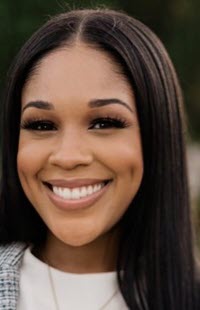Abstract
Excerpted From: Rana L. Freeman, Admissions Denied: The Effects on Corporate America Jobs If Race Is Excluded as a Factor in University Admissions, 50 Southern University Law Review 111 (Spring, 2023) (161 Footnotes) (Full Document)
 It is the year 2030, and race is no longer considered a factor in a university's admissions process.
It is the year 2030, and race is no longer considered a factor in a university's admissions process.
She braced herself. She has just applied to one of her top choices--The Pennsylvania State University (Penn State). In the application, she filled out her personal information, listed extracurricular activities and honors, submitted letters of recommendation, paid the application fee, and submitted a diversity statement in the university's admission portal. Weeks dragged by, and then several months passed. She waited confidently, thinking, surely, she had met all the requirements and that she was more than qualified to attend Penn State. She logged into the university's admissions portal to check the status of her application. She sat in front of the computer with her family clicking frantically to get to the university's admission decision. She glared at the computer for 10 seconds at the decision. It read in capital, bold letters: ADMISSION DENIED.
So, who is this candidate that was denied admission to the university? Well, her name is Eboni Marie Jackson, an African American female. Eboni was the oldest sibling of four, born and raised on the southside of Chicago by a single mother. She was active in her hometown by participating in monthly community service projects and sang every Sunday in her church choir. Eboni exhibited exceptional moral character, and she never got into any trouble in school or with the law. Eboni Marie Jackson graduated in the top 15% of her graduating high school class with a 4.4 grade point average. On the SAT, Eboni received a composite score of 1085. She was the President of the Student Government Association, Vice President of the Debate Team, Co-Captain of the Cheerleading Squad, Secretary of the National BETA Club, a member of Best Buddies, and a member of the National Honor Society. Business oriented and leadership driven, Eboni aspired to be a business major and ultimately a CEO of a Fortune 500 company.
What if Eboni's race would have been considered a factor in the year 2022? Would it be more likely than not that she would have been admitted? Is Eboni faced with only Historically Black Colleges or lower-tier schools as secondary education options? If so, does this affect her dream to be CEO of a Fortune 500 company because her educational background is less diversified? If race-conscious admissions were still constitutionally valid in 2030, would Eboni be considered a top choice to achieve the goal of the diversity efforts of the university?
While the above scenario is fictional, it is not only possible, but the next probable evolution of admission decisions for minorities if race-conscious admissions are declared unconstitutional in Students for Fair Admissions, Inc. v. President and Fellows of Harvard College or Students for Fair Admissions, Inc., v. University of North Carolina.
This comment analyzes how the Court might address the challenge of the constitutionality of race-conscious admissions in universities, and if overturned, the impact it has on Corporate America. To illustrate and contextualize a future admissions scenario, a fictional admissions process of a minority has been discussed. Part II explores the general background of affirmative action, the civil rights movement's impact on universities-- particularly the Regents of University of California v. Bakke case, its procedural history, facts, and holding, and the analysis of the Grutter v. Bollinger case. Part III focuses on the definition of Diversity, Equity, & Inclusion ("DEI"), the limits imposed by law on DEI programs, Corporate America's DEI efforts, Corporate America's reliance on universities to recruit diverse candidates, and Corporate America's collaboration with universities to recruit diverse candidates. Part VI analyzes outcomes based on Part II and Part III. Part V states a conclusion.
[. . .]
Therefore, the Supreme Court should not overturn Grutter, and should not ban race-conscious admissions for universities and colleges. If universities can show that there is a compelling interest to diversify their student body, and the means chosen to achieve that goal is narrowly tailored, then their means should be upheld constitutionally. If the Supreme Court overturns Grutter, then it will lead to less diverse student bodies and will negatively impact minorities' employment in corporate America's job sector.
J.D. Candidate, December 2023 Southern University Law Center.


